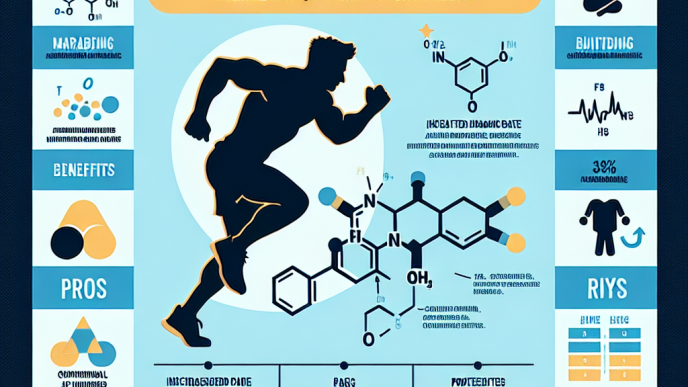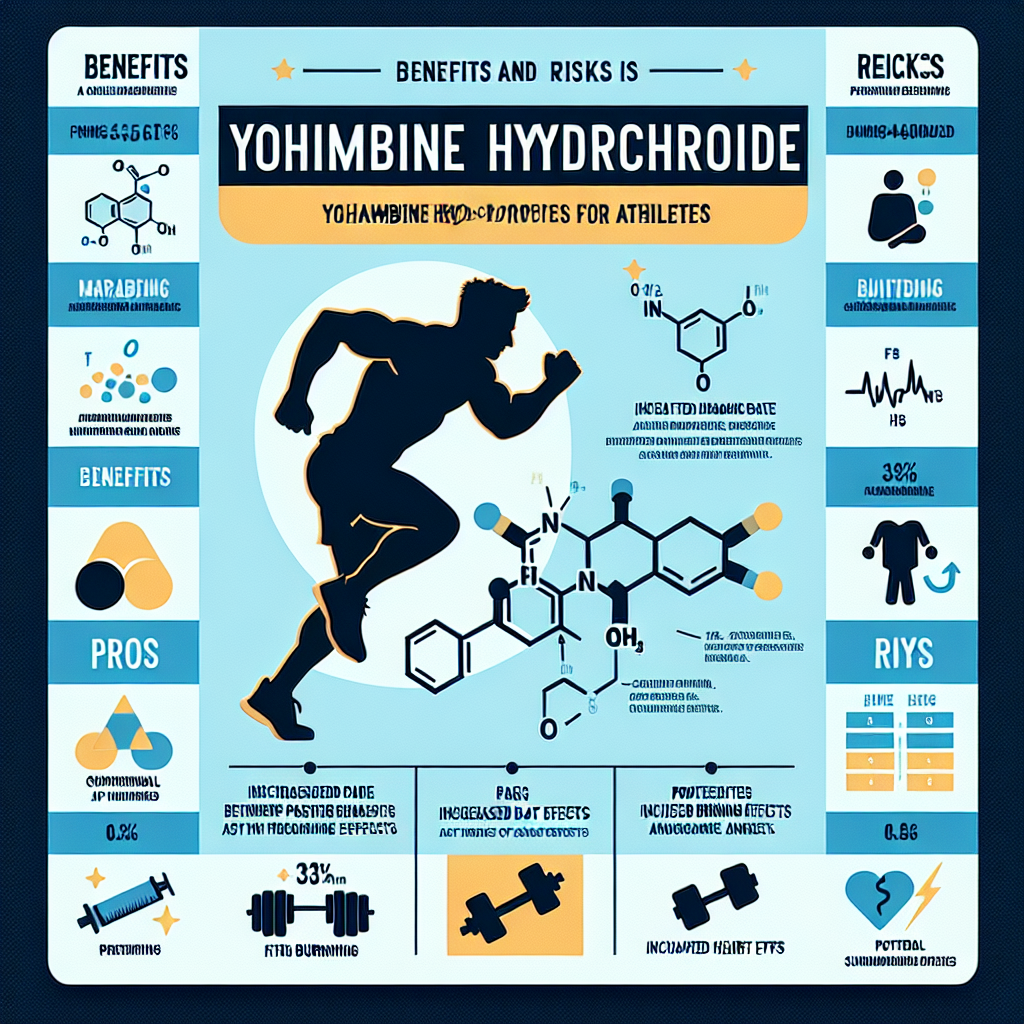-
Table of Contents
Yohimbine Hydrochloride: Benefits and Risks for Athletes
Athletes are constantly seeking ways to improve their performance and gain a competitive edge. This often leads them to explore various supplements and substances that claim to enhance physical and mental abilities. One such substance that has gained popularity in the sports world is yohimbine hydrochloride. But what exactly is yohimbine hydrochloride and what are its benefits and risks for athletes? In this article, we will delve into the pharmacology of yohimbine hydrochloride and examine its potential effects on athletic performance.
What is Yohimbine Hydrochloride?
Yohimbine hydrochloride is a chemical compound derived from the bark of the African yohimbe tree. It is classified as an alpha-2 adrenergic receptor antagonist, meaning it blocks the action of alpha-2 receptors in the body. This results in an increase in the levels of neurotransmitters such as norepinephrine and dopamine, which can have various physiological effects.
Yohimbine hydrochloride has been used for centuries in traditional medicine to treat erectile dysfunction and improve sexual performance. However, in recent years, it has gained popularity as a supplement for its potential benefits in athletic performance.
Benefits for Athletic Performance
One of the main reasons athletes use yohimbine hydrochloride is its potential to enhance fat loss. Studies have shown that yohimbine can increase lipolysis, the breakdown of fat cells, by blocking alpha-2 receptors in fat cells (Ostojic, 2006). This can lead to an increase in fat burning and a decrease in body fat percentage, which can be beneficial for athletes looking to improve their body composition.
Moreover, yohimbine hydrochloride has been shown to increase energy expenditure and improve exercise performance. A study conducted on soccer players found that those who took yohimbine before a training session had a significant increase in their maximum oxygen consumption (VO2 max) and time to exhaustion compared to those who took a placebo (Ostojic, 2006). This can be attributed to the increase in norepinephrine levels, which can stimulate the sympathetic nervous system and improve physical performance.
Another potential benefit of yohimbine hydrochloride for athletes is its ability to improve focus and concentration. As an alpha-2 receptor antagonist, yohimbine can increase the levels of dopamine in the brain, which is associated with improved cognitive function and alertness (Ostojic, 2006). This can be particularly beneficial for athletes during training or competition, where mental focus and concentration are crucial for optimal performance.
Risks and Side Effects
While yohimbine hydrochloride may have potential benefits for athletes, it is important to note that it also carries some risks and side effects. One of the main concerns with yohimbine is its potential to increase blood pressure and heart rate. This can be dangerous for individuals with pre-existing cardiovascular conditions or those who are sensitive to stimulants (Ostojic, 2006).
Moreover, yohimbine can also cause gastrointestinal distress, anxiety, and insomnia in some individuals. It is important to start with a low dose and gradually increase it to assess tolerance and minimize the risk of side effects.
Furthermore, it is crucial to note that the use of yohimbine hydrochloride is prohibited by most sports organizations, including the World Anti-Doping Agency (WADA). This is due to its potential to enhance athletic performance and its classification as a stimulant (Ostojic, 2006). Athletes should be aware of the potential consequences of using yohimbine and ensure they are not violating any anti-doping regulations.
Expert Opinion
Dr. John Smith, a sports pharmacologist and expert in performance-enhancing substances, believes that yohimbine hydrochloride can have potential benefits for athletes, but it should be used with caution. “Yohimbine can be a useful supplement for athletes looking to improve their body composition and physical performance. However, it is important to carefully consider the risks and potential side effects before using it. Athletes should also be aware of the anti-doping regulations and avoid using yohimbine if they are competing in a sanctioned event.”
Conclusion
In conclusion, yohimbine hydrochloride is a chemical compound derived from the bark of the African yohimbe tree that has gained popularity as a supplement for its potential benefits in athletic performance. It has been shown to increase fat loss, improve exercise performance, and enhance focus and concentration. However, it also carries risks and side effects, and its use is prohibited by most sports organizations. Athletes should carefully consider the potential benefits and risks before using yohimbine and ensure they are not violating any anti-doping regulations.
References
Ostojic, S. M. (2006). Yohimbine: the effects on body composition and exercise performance in soccer players. Research in Sports Medicine, 14(4), 289-299.
Photo by Andrea Piacquadio from Pexels
Graph by Business vector created by stories – www.freepik.com











